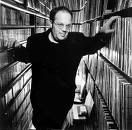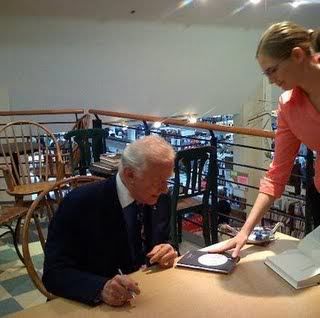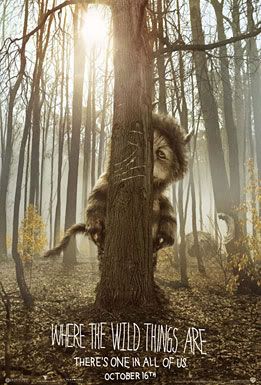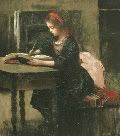I keep clawing at the bars of the cage I built for myself. But first a digression. Walter W. Skeat wrote numerous notes on English etymology, some of which he eventually put together and published in book form. Much to my regret, not too many kl-words attracted his attention. But I was amused to discover that the verb clop means not only the sound made by shoes or hoofs but also “to cling, adhere to.”
The post Sartor resartus, or some thoughts on the origin of the word “cloth” and the history of clothes appeared first on OUPblog.
You just lost your job. Your partner broke up with you. You’re late on rent. Then, you dropped your iPhone in the toilet. “My life’s in shambles!” you shout. Had you so exclaimed, say, in an Anglo-Saxon village over 1,000 years ago, your fellow Old English speakers may have given you a puzzled look. “Your life’s in footstools?” they’d ask. “And what’s an iPhone?”
The post The shambolic life of ‘shambles’ appeared first on OUPblog.
In 2004, Shakespeare's Globe in London began a daring experiment. They decided to mount a production of a Shakespeare play in 'original pronunciation' (OP) - a reconstruction of the accents that would have been used on the London stage around the year 1600, part of a period known as Early Modern English. They chose Romeo and Juliet as their first production, but - uncertain about how the unfamiliar accent would be received by the audience - performances in OP took place for only one weekend.
The post Original pronunciation: the state of the art in 2016 appeared first on OUPblog.
By Anatoly Liberman
Question: How large is an average fluent speaker’s vocabulary?
Answer: I have often heard this question, including its variant: “Is it true that English contains more words than any other (European) language?” The problem is that “an average fluent speaker” does not exist. Also, it is important to distinguish between how many words we recognize (our so-called passive vocabulary) and how many we use in everyday communication (active vocabulary). The size of people’s active vocabulary depends on their needs, but it is rarely large. Thus, five-year olds can say everything they want, but if they are read to and if grownups speak to them all the time, they understand complicated tales and the content of their parents’ conversation amazingly well (oftentimes much better than one could wish for). Some people cultivate their conversational skills and make an effort to use “sophisticated” words in their dealings with the outside world; others are happy to remain at the level of first-graders. One of the most memorable events in my teaching career happened about thirty years ago when a student approached me after a lecture and, having complimented me (they always do in such cases), added: “But I don’t understand half of the words you use.” Ever since that day I have worked systematically on reducing my “public” vocabulary but sometimes still forget myself.
Our passive vocabulary depends on our reading habits. Since “great classics” are being frowned upon as elitist, the younger generation has trouble understanding even 19th-century English (Jane Austen, Dickens, Thackeray, and so on, through Henry James and the utterly forgotten Galsworthy), while publishers promote books written more or less in Basic English. Students get tired of following those authors’ synonyms, idioms, and convoluted syntax (their greatest compliments are matter of fact and down to earth, while all digressions are castigated as rambling). The same is true, to an even greater extent, of their attempts to read Defoe, Fielding, and Swift. For some Americans of college age even the vocabulary of Mark Twain poses difficulties. It is hard to believe that Mark Twain, like Jack London and Charles Dickens, was self-taught. Yet quite a few of our best and brilliantly educated writers did not make use of an extensive vocabulary. Oscar Wilde is a typical example. Others, like Dickens and Meredith, let alone James Joyce, made a heroic effort to use as many rare and learned words as possible.
Good dictionaries of English, French, Spanish, Italian, German, Swedish, etc. seem to be equally thick. In a dictionary containing about 60,000 words one can find practically everything one needs. Webster’s Unabridged features seven or eight times more. Obviously, none of us needs to know so much. But perhaps two features distinguish English from its neighbors: an overabundance of synonyms (because of the partly unhealthy influx of Romance words) and the ubiquity of slang. French also overflows with argot, but English dictionaries of slang (British, American, Canadian, Australian) are almost unbelievably thick. This makes it harder to master current English than, for example, German, but each language has its difficulties. English resorts to all the usual international words (music, radio, antibiotic, and the like), while Icelandic prefers native coinages for such concepts. It appears that whether you want to learn a foreign language or your own you have to make a sustained effort. But then this is what the sweat of one’s brow is for. Only Adam had an easy life: none of the objects around him had a name, and he was instructed to call them something (presumably he remembered his own neologisms). His offspring ca
This is For You -- and anyone else -- Out There in the world that stops, drops and listens to a song, a poem, a story, the words drawing us in and reminding us of something more than dialogue and setting and plots and lyrics and music to make true connections in the oddest of synapses and crevices.
I should quickly explain the reason why the song "I'll Stop the World and Melt with You" triggered so much Cosmic Thought last night. Cryptic is good for our mss, not our friends. {}

Saturday night. One child out. The younger girl with us. We originally intended to go see WHERE THE WILD THINGS ARE but we decided to wait until both girls could see the movie together and with us.
We decided on a lovely Japanese dinner instead. My daughter has been craving for sushi for weeks. It's not my favorite but I Did It For Her. The restaurant was elegant but comfortable and the food was delicious (if you think, like my daughter does, that eel rolls are delicious; I went for the safer selection of chicken teriyaki). Everyone was happy (except for the eels that sacrificed their lives for the happiness of my child).

Driving home last night with our younger daughter in the back seat, we put on our favorite Saturday night radio show: WFUV 90.7 FM, Vin Scelsa's Idiot's Delight. (Nan, I bet you know about Vin since we grew up in same area. Does the name ring a bell? He was part of the 102.7 WNEW-FM when Rock Lived there for the important years of our growing up.) {}

For reasons I am trying to find out (via Vin Scelsa's message board), at appx 11 pm, Vin played "I'll Stop the World and Melt for You." (I should back up here. When we had the show on earlier in the evening, author Jonathan Lethem was Vin's in-studio guest. We had dinner plans (with the daughter) and then we had an hour to go to the Book Revue-- yes the Book Revue ![[info]](http://l-stat.livejournal.com/img/userinfo.gif) nanmarino came to see Buzz Aldrin a few months ago and shared her book, Neil Armstrong is My Uncle and Other Lies Muscle Man McGinty Told Me, with the world-famous astronaut and the very same Book Revue the world-famous writer Melodye Shore,
nanmarino came to see Buzz Aldrin a few months ago and shared her book, Neil Armstrong is My Uncle and Other Lies Muscle Man McGinty Told Me, with the world-famous astronaut and the very same Book Revue the world-famous writer Melodye Shore, ![[info]](http://l-stat.livejournal.com/img/userinfo.gif) newport2newport, shared a few special moments with me on her visit to Long Island far too long ago.
newport2newport, shared a few special moments with me on her visit to Long Island far too long ago.

Yes, Nan, ![[info]](http://l-stat.livejournal.com/img/userinfo.gif) nanmarino, that's your photo! I hope you don't mind seeing it again!Thank you!
nanmarino, that's your photo! I hope you don't mind seeing it again!Thank you!
(A special note here to Mary Cronin, ![[info]](http://l-stat.livejournal.com/img/userinfo.gif) maryecronin: I can never leave a bookstore empty-handed. Last night's treasure? Two collections of poetry by Mary Oliver to add to my overstuffed poetry book shelves-- not that I am complaining.)
maryecronin: I can never leave a bookstore empty-handed. Last night's treasure? Two collections of poetry by Mary Oliver to add to my overstuffed poetry book shelves-- not that I am complaining.)
When we left the store at closing time, Vin was in the middle of a long, musical set. "Stop the World" played. My daughter was electrified. "Love this song!" she told us. "It's on my IPOD. I play it all the time!" I had no idea she knew the song. It was wonderful to be able to sing together. I was sorry we were close to home when the song ended and we had to get inside to let the dog out. I didn't get to hear Vin explain -why- he played the song. Was it a random call or was there a specific meaning behind its selection? (With Vin, you never know.) {}
I told my daughter we would have to rent VALLEY GIRL and watch it together. "Stop the World" always makes me think of Valley Girl and Nicolas Cage as the weird, gothic boyfriend to perky Deborah Foreman's Valley Chick. Used to love that movie and it will be fun to see it again with my daughter. "Stop the World and Melt with You" will forever conjure up images of that last scene as Cage and Foreman drive off into the sunset.
The night is winding down. I was in my office late last night. The house, so hushed and serene and quiet. My favorite part of the day. Alone with my files and keyboard and music.
I turned on the television and flipped around until I stopped at PBS and the movie ADAPTATION. I've always meant to see the movie from start to finish but it's never happened. And there it was with one hour left and there was.. Nicolas Cage, of all people, playing the screenwriter in ADAPTATION. (The scene where Cage's character is abused by STORY'S Robert McKee in the midst of his infamous writing seminar is classic and a must-see for all writers. Now I HAVE to rent two movies: Valley Girl and Adaptation!)
I wanted to know the actors' names in ADAPTATION. I clicked onto its IMDB site and poked around.
Here's where it gets weirdest of all.
I had NO idea ADAPTATION was directed by... Spike Jonze!


How much more breathtakingly wired could this all be?
"Melt the World" segues into Nicholas Cage segues into Adaptation and Nicholas Cage and Spike Jonze segues into WHERE THE WILD THINGS ARE directed by Spike Jonze!

It was all just tooooo weird. (Okay so now there are three movies that circled into my life last night: Valley Girl, Adaptation, and Where the Wild Things Are!)
And it was all because of a random moment on a radio station and sweet music that brought together mom, dad and daughter in a moment of sweet harmony.
It's crazy what a song can do, isn't it? {}

"The book has no story. There's no story." (Alright. Make one up.)
...except every word in this story, my story, is true
and even if you didn't live it,
you've felt it
and if you've felt it,
now it's your story, too
and if you didn't write it,
you can read it
and that makes all the difference in the world.
That's the wild thing about writing and reading.
Your stories are true for someone, somewhere.













